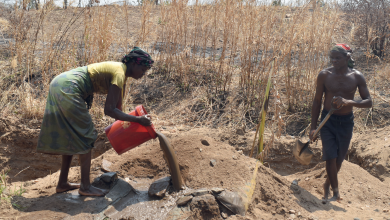Ecama welcomes restoration of cost-reflective fuel pricing
The Economics Association of Malawi has welcomed the decision by Malawi Energy Regulatory Authority (Mera) to restore cost-reflective fuel pricing through the automatic pricing mechanism (APM).
Under APM, prices are revised when changes on fuel landed costs are beyond the trigger limit of plus or minus five percent.

Following the hike by an average 32 percent effective October 1, petrol is now selling at K3 499 per litre from K2 530 while diesel has increased to K3 500 from K2 734.
In a written response on Friday, Ecama president Bertha Bangara-Chikadza cautioned that the adoption of APM could trigger inflationary pressure and strain household budgets.
But she said aligning domestic pump prices with global market trends could, in the long-term, reduce fiscal pressure and ease demand for scarce foreign exchange.
Said Bangara-Chikadza: “Restoring cost-reflective pricing can help reduce fiscal burdens and ease pressure on foreign exchange reserves by aligning domestic fuel prices with global market trends.
“However, the risk of inflation is a genuine concern. Higher fuel costs tend to ripple through the economy, raising transport and food prices, which can erode household purchasing power and dampen growth.”
She stressed that restoring price realism must be matched with sound management of inflation expectations.
“The net effect will depend on how well government manages inflation expectations and whether complementary policies are introduced to protect vulnerable groups,” said Bangara-Chikadza, who teaches economics at University of Malawi.
In a separate interview, Catholic University of Malawi economics lecturer Greenson Nyirenda said the fuel price adjustment reflects a “seasonal bounce” in the economy and urged the new administration to anchor reforms in fiscal discipline and market confidence.
He said: “There are two things when it comes to stability. Firstly, as a country, we have not changed much in our export base and second-quarter imports related to agriculture activities tend to rise, so we may still face challenges.
“Secondly, it will depend on new measures by the new government. The forex market, apart from forces of demand and supply, is also driven by speculation.”
Nyirenda said if the new measures inspire market confidence, there could some improvement, but what is key is fiscal discipline.
An economist who did not want to be named said unresolved liabilities in the fuel supply chain could “crowd out essential spending and increase borrowing needs”.
He said households will bear the brunt of higher transport and food costs, with low-income families hit hardest.
Said the economist: “Businesses, especially small and medium enterprises, are also expected to face rising input costs that could reduce competitiveness and slow job creation.
“To limit the social fallout, government consider short-term safety nets such as targeted food-for-work programmes and transport subsidies for public service operators.”
Mera said the review followed a surge in in-bond landed costs driven by a weaker kwacha and higher transport and insurance charges.
The International Monetary Fund has consistently argued that delayed fuel price adjustments have built up large fiscal liabilities, indicating that the Price Stabilisation Fund is depleted, resulting in importers owed in excess of K950 billion as of August this year.




